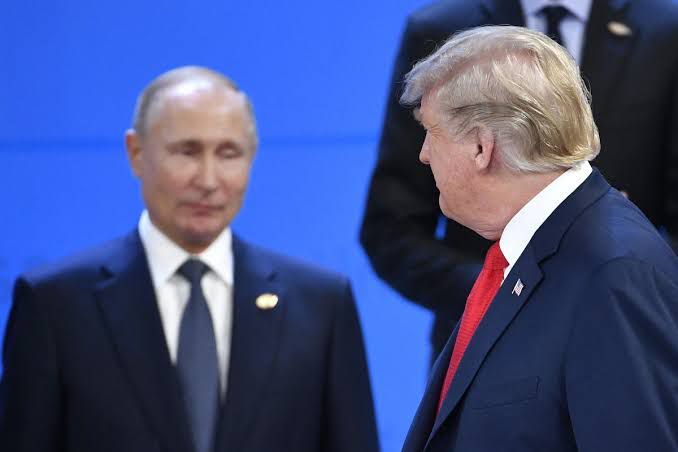U.S. President Donald Trump suggested he would hit Russia with additional sanctions if President Vladimir Putin does not accept peace talks to end the war in Ukraine, while he also urged Chinese leader Xi Jinping in a phone call to help end the conflict.
“Sounds like it,” Trump told reporters at the White House on January 21 when asked if Washington would slap fresh sanctions on Russia if Putin did not come to the negotiating table.
Trump did not offer details on potential new measures — which would come on top of a vast array of sanctions already targeting Russia for its full-scale invasion of Ukraine in 2022.

Trump also restated his intention to speak with Putin in the near term, without providing a timeframe.
“We’re talking to [Ukrainian leader Volodymyr] Zelenskiy. We’re going to be talking with President Putin very soon. We’re going to look at it.”
The U.S. president on January 20 said Zelenskiy had told him he wanted a peace agreement to end the war.
Referring to Putin’s close ally — Chinese leader Xi — Trump said he urged him in a call to help end the brutal conflict.
“He’s not done very much on that. He’s got a lot of…power, like we have a lot of power. I said, ‘You ought to get it settled.’ We did discuss it,” Trump said.
Trump also said his team was looking at the possibility of sending additional weapons to Ukraine. During his presidential campaign, Trump spoke out vigorously against the level of aid provided by President Joe Biden’s administration.
However, Trump had at times said he was open to the idea of a lend-lease program that would see Ukraine pay back the United States for weapons shipments over time.
In his latest remarks, he also repeated his stance that other allies should increase their spending on Ukraine’s defense, calling on the European Union to “equalize” aid outlays to match U.S. assistance levels.
The remarks come on the second day of Trump’s new term in the White House and represent the second straight day he has appeared to put pressure on Putin – who he has often praised – to move forward with peace negotiations.
During the presidential campaign, Trump vowed to end the war within 24 hours after taking office. He has backed off those comments in recent weeks but has still pledged to end the war quickly.
Many analysts say it will be difficult to end the war in the near term because Putin believes he is winning and has no incentive to stop the fighting, even as Russia suffers devastating losses in men and equipment.
A night earlier – Trump’s first since retaking the presidency at noon on January 20 – the president said Putin is “destroying” Russia by refusing to make a deal to end the Ukraine war.
“He should make a deal. I think he’s destroying Russia by not making a deal,” Trump told reporters.
“I think Russia’s going to be in big trouble.”
“Most people thought that war would have been over in one week,” Trump said in what appeared to be his most critical public remarks about Putin’s war.
“I think he’d be very well off to end that war.”
Russian foreign policy adviser Yury Ushakov told reporters that Moscow was “taking into account” Trump’s remarks, but he declined to elaborate, saying the Kremlin was waiting for “concrete proposals that could form the basis for contacts.”
Putin on January 21 spoke with ally Xi in a video call as the two underlined their close ties and discussed their potential contacts with the Trump team.
Russian media quoted Putin as telling Xi that “joint efforts by Russia and China play an important stabilizing role in global affairs.”
Russia and Ukraine have suffered major losses on the battlefield since Putin launched an unprovoked, full-scale invasion of Ukraine in February 2022.
Prior to that, Russia in 2014 invaded and illegally annexed Ukraine’s Crimean Peninsula and launched its support of separatists in eastern Ukraine, capturing and eventually claiming large portions of eastern Ukraine.
Sanctions already implemented by the United States and European Union have devastated Russia’s economy.
In addition, Russia has burned through hundreds of billions of dollars on the war, suffered an estimated 700,000 casualties, and frightened its neighbors, while also sacrificing the lucrative European gas market and access to Western financial markets as the ruble has tumbled in value.
The Kremlin is spending about 40 percent of its budget on the military and is struggling to contain inflation even with interest rates above 20 percent. In return, it has seized territory in Ukraine that lays in waste.
• With reporting by Reuters